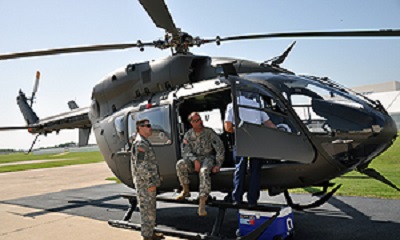
In today’s competitive marketplace, shopping around for the best deal is the norm. Thrifty shopping is facilitated through modern technology, where price comparisons are just a click away. From individual consumers to corporations, there can be great financial benefits in shopping around and looking at several offers before pulling the trigger on a purchase. The U.S. government should not be exempted from this frugality, and neither should the military.
Since 2010, The U.S. General Services Administration (GSA), which facilitates the purchase of various goods and service for federal government agencies, has implemented a program to generate competition when agencies buy office supplies. This competition among the vendors drives down the costs and reduces wasteful spending.
The GSA’s program requires vendors who want to do business with the government to reveal their pricing to both the government buyer and their competition. The ability for vendors to see their competitors’ pricing allows them to lower theirs, saving the government money. It also prevents over-spending on the part of government buyers who, in the past, have sometimes paid more than four times the amount for one product over another.
The pricing bids and purchase receipts are sent to the Government Accountability Office (GAO), which review the purchases made, comparing them to the actual bids. This procedure works as a check/balance system, protecting the government from charges of favoritism or misconduct. It also keeps the playing field level for all vendors hoping to participate in government contracts.
The GAO has urged the Pentagon to do more to safeguard against waste. The GAO contends that promoting competitive contracts, through programs like the GSA’s, can help save the government money, curb fraud, and promote accountability.
Recently, the U.S. Army decided not to seek bids for the contract to purchase 100 new helicopters. Instead, the Army chose to offer the contract to Airbus for 100 Lakota UH-72 helicopters. While the Army has its reasons for granting the contract the way they did, one of which was customer satisfaction with Airbus, the GAO and many other vendors from the helicopter industry were surprised with the decision.
In reality, the lack of competition favors the larger companies by excluding offers from small and medium sized businesses.
The Veteran and Military Business Owners Association (VAMBOA) is a non-profit business trade association that promotes and assists Veteran Business Owners, Service Disabled Veteran Owned Businesses (SDVOB) and Military Business Owners. Small businesses are the backbone of our economy and responsible for job generation. That is why VAMBOA provides its members with Business Coaching, Contracting Opportunities, a Blog that provides information, Networking contacts and other resources. Membership is FREE to Veterans. Join Now!








Leave a Comment